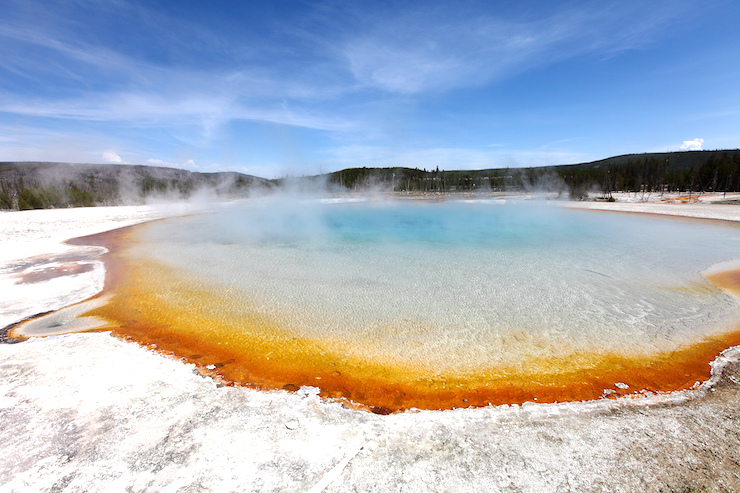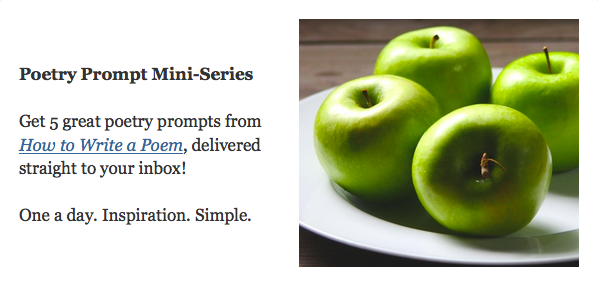
It became the world’s first national park. The drama of our natural world unfolds before the nation’s eyes. Its volcanic power rises up in mudpots, colorful hot springs, and spouting geysers. Mountains, forests, and pristine lakes are home to unforgettable wildlife. The history of Yellowstone leads to its conservation as a national treasure “for the benefit and enjoyment of the people.”
Yellowstone was located at the convergence of the Great Plains, Great Basin, and Plateau Indian cultures, and these had a traditional connection to resources. As such, Yellowstone was originally a place where Native Americans hunted, fished, gathered, and worshiped.
John Colter, a member of the Lewis and Clark Expedition had left the group during its return journey to explore the area with fur trappers in 1807. When he told others about the incredible sights, he was met with ridicule. Some thought he had hallucinated when he described the “Hot Spring Brimstone” and jokingly referred to the area as Colter’s Hell.
The legendary mountain man, Jim Bridger, also told others of this fantastical place. He remarked there was a canyon so deep, he would shout “Wake up, Jim!” into it at night and then be awakened by his own echo the next morning.
After many expeditions later, other parties passed through the boiling sulphur springs, and the rumors were proven to be true. Finally in 1871, a young artist named Thomas Moran accompanied a photographer and finally captured incredible images that allowed Americans their first glimpse of the fabled landscape.
In March of 1872, President Ulysses S. Grant signed the bill to make Yellowstone a national park, the first in the world. After years of mismanagement, poaching, and desecration of landmarks, Congress passed the National Park Protection Act in 1894, which gave the U.S. Army authority to protect the park’s treasures.
This set the stage for the creation of the National Park Service. President Woodrow Wilson approved the congressional act in 1916 and established a management framework that served Yellowstone for decades.
The onset of World War II drew away not only employees and visitors, but money to maintain the park. Some projects were left unfinished due to funds being redirected to the war effort. Following the war, visitation skyrocketed and the neglect of the war years was evident. Congress eventually funded an improvement program directed at improving and modernizing the park.
These cumulative years have shown that the effort to establish Yellowstone as a national park was much more than just preserving a wild and unique landscape. The ideas and concepts led to all the national parks Americans enjoy—wilderness as an inheritance to everyone, its preservation and stewardship our charge.
Try It: Yellowstone Poetry
As Yellowstone National Park was created “for the benefit and enjoyment of the people, ” what mark has it left on the experience of America as a nation? Whether or not you’ve visited, what feelings does Yellowstone evoke in you? How is the landscape something we can be proud of? Write a poem about this national treasure.
Click to get FREE 5-Prompt Mini-Series
Featured Poem
Thanks to everyone who participated in our last poetry prompt. Here’s a poem from Shelly we enjoyed:
Every morning as I turn kale and blueberries upside down
In a magic cup swimming of almond milk,
my mind returns to a kitchen in Kansas
where a supersized granite island holds
an altar of remembrance
for three friends now scattered by time.
I ache to turn back the clock,
add one more day on a string of five,
but I sigh into the quiet instead.
Photo by Che-Wei Chang, Creative Commons via Flickr.
Browse more writing prompts
Browse poetry teaching resources

“How to Write a Poem is a classroom must-have.”
—Callie Feyen, English Teacher, Maryland
- Poetry Prompt: Misunderstood Lion - March 19, 2018
- Animate: Lions & Lambs Poetry Prompt - March 12, 2018
- Poetry Prompt: Behind the Velvet Rope - February 26, 2018

Donna Falcone says
Shelly, I really loved your poem! I’m so glad we got to see it again.
This got me thinking about our trip to Yellowstone – what amazed me most was this: as we walked along the boardwalk, there at the rail gazing at the hot springs was a man my father worked with, thousands of miles away, back home. Funny I remember that more than the springs. I do remember being afraid though – those boardwalks didn’t offer much protection, I thought, even as a little kid. Of course…. there’s this, in poem form:
En garde ~
Feeble boardwalks snaked around
Boiling water shooting
Rotten egg water,
Like from a whale’s spout.
But, my thoughts were fixed
On brothers who might do anything
For more room in the back seat.
As long as they didn’t touch the baby.
Heather Eure says
How wonderful that you’ve visited Yellowstone! Do you have a favorite memory of any of the grand displays of nature or the animals you saw?
Donna Falcone says
Not really. I was pretty nervous about the whole place. I don’t remember what we saw, but I have a few felt memories. I remember my father laughing and telling about how my younger sister talked all the way to an from the lake because she’d heard that if bears hear voices they will stay away. He was impressed, I think. 🙂
I remember it smelled like rotten eggs, of course, yuck.
The most striking thing about the visit, for me, was that as we walked along the boardwalks at the geysers, more than a thousand miles from home, a friend of my dad’s stood there at the rail all alone, waiting for a spout I think. I was very young, but I remember the astonishment my parent’s expressed over bumping into a guy from work so far from home and what are the odds and it really is a small world after all.
Prasanta says
Well, you had me thinking all week about this one. I visited Yellowstone in August, so the memory is still fresh. (Donna, I clearly remember that “rotten egg” smell!)
What a fascinating, unusual, and beautiful place!
I attempted a villanelle, following the instructions given right here on the Tweetspeak site. 🙂
Freely Roam
You know I long to roam, at my will
Like wildlife and buffalo
In the wild backdrop of forested hills
I see herds on the path, just downhill
Past steaming springs, bubbling above ground
It makes me long to roam, at my will
I hike back trails and hear unknown trills
Listen to muffled messages in tall grasses
Against a wild backdrop of forested hills
Pronghorn deer fly with effortless skill
Unbound in the valley below
And it makes me long to roam, at my will
I hear the osprey – a shrill
Cry amidst a settled peacefulness here
And it makes me long to freely roam, at my will
In the wild backdrop of forested hills
Heather Eure says
Nice! We’re so glad we could inform and inspire you to write this poem. Thanks for sharing, Prasanta.
Donna Falcone says
Prasanta – so many sensory memories here. This line really popped out at me:
Listen to muffled messages in tall grasses
Muffled message! That’s so packed with meaning.